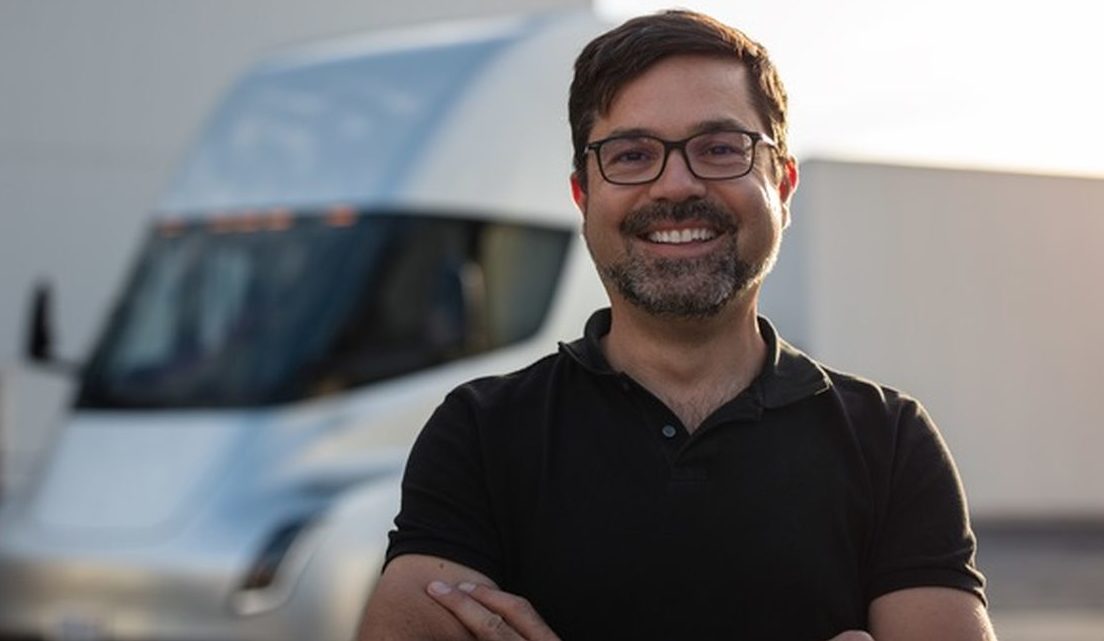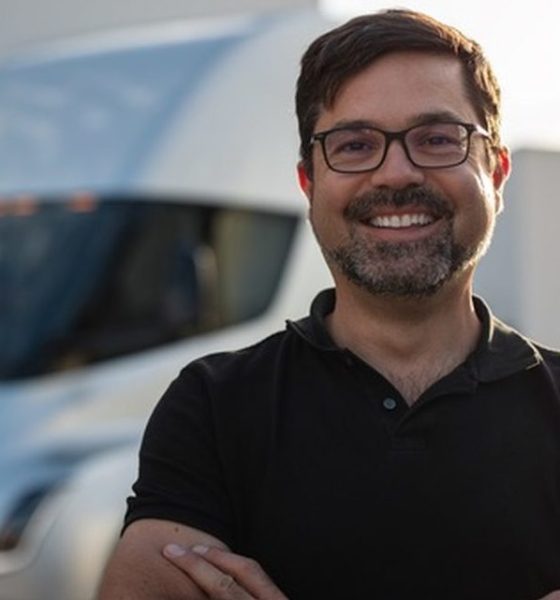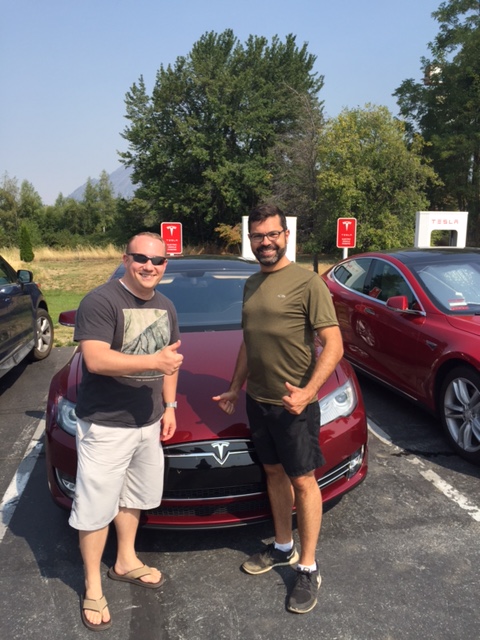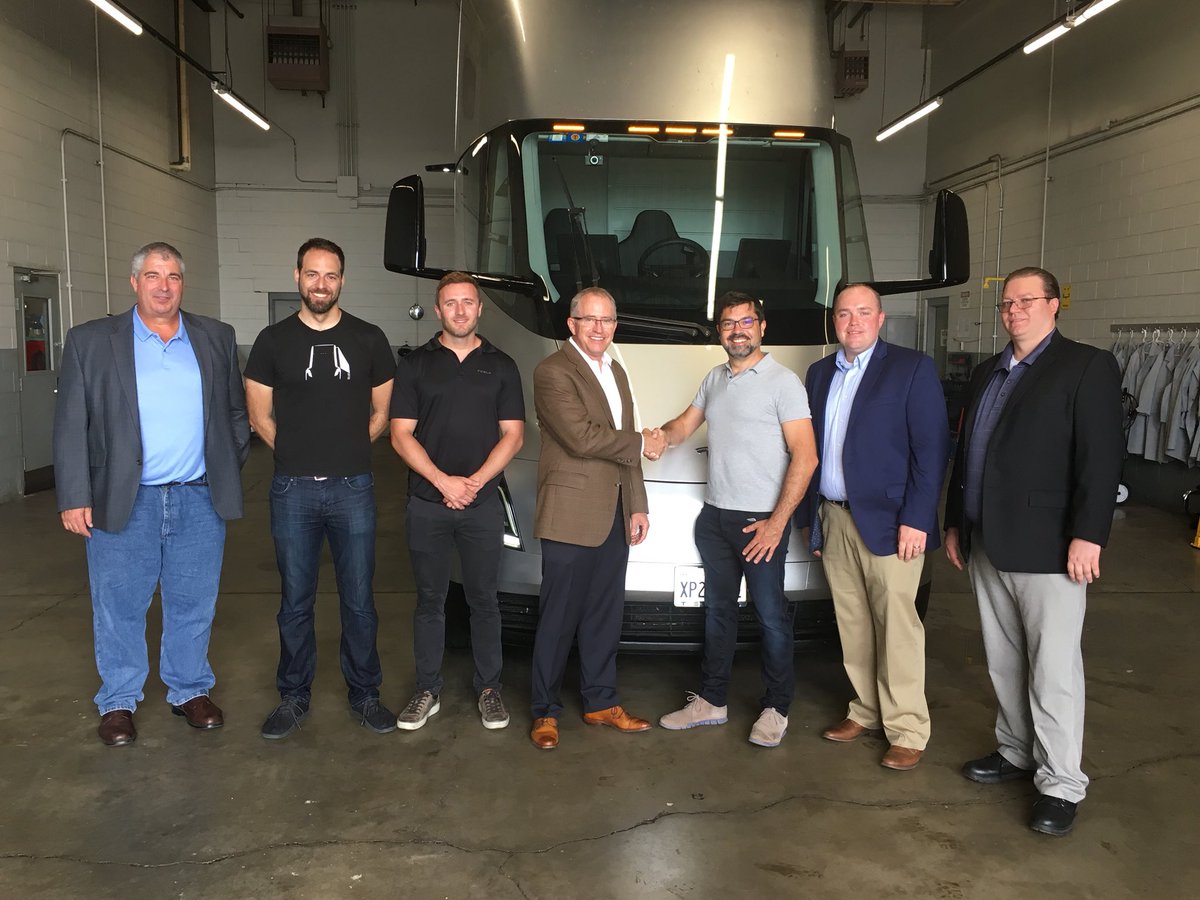

Investor's Corner
Tesla’s veteran problem solver Jerome Guillen is Elon Musk’s most strategic appointment yet
Earlier this month, Tesla CEO Elon Musk announced a series of strategic promotions that are aimed at taking the company to reach new heights in the years to come. Among the promotions, Elon Musk’s appointment of veteran accomplisher Jerome Guillen as the company’s new President of Automotive stood out. As the end of the third quarter approaches, it is starting to look like Elon Musk’s promotion of the hands-on executive was the correct strategy.
Jerome Guillen joined Tesla back in 2010 as the director of the Model S program. Prior to his employment at Tesla, Jerome served as the project leader for Daimler’s Freightliner Cascadia program, and eventually as head of the company’s Business Innovation unit. By the time he left for Tesla, Daimler’s Business Innovation unit was profitable and self-funding.
When Jerome joined the electric car maker, Tesla was still a fledgling startup that only produced and delivered a small number of its two-door Roadster to a select group of customers. Being the first vehicle that the company designed from the ground up, a lot was riding on the Model S, particularly as critics of the company were quick to dismiss the electric car as “vaporware.” Guillen was a hands-on executive, and for some early customers of the Model S, he became the go-to person when issues arose.

And issues did arise. When Tesla started delivering the Model S to reservation holders, the company lacked sufficient sales and service centers. Tesla was delivering vehicles directly to people’s homes, and while this worked well for the first few hundred handovers in California, it became a big logistical headache for the company when customers from faraway states started ordering the electric car. Elon Musk, for his part, opted to have Jerome add sales, service, and deliveries to his portfolio. The hands-on executive handled the task well, even developing a reputation for being incredibly responsive to emails and concerns from regular customers.
Early Model S adopter Andrew Wolfe of Los Gatos, California noted in a statement to Bloomberg that he was among the customers who were in constant communication with the executive. Wolfe noted that Jerome was always open to suggestions, such as where Tesla should consider opening additional service centers, as well as the company’s points for improvement in terms of loaner vehicles.
Jerome’s work with the Model S program would ultimately help lay the groundwork for the company’s following vehicles, the Model X SUV and later, the Model 3. The executive briefly took a leave of absence from the company in 2015, but later returned to head the Tesla Semi program. Over the past months, sightings of the Semi across the United States would feature Jerome from time to time, accompanying the long-hauler’s hand-built alpha prototype on its road tests.

While he was heading the Tesla Semi program, Jerome’s out-of-the-box problem-solving skills would prove useful for the company’s overall operations. Back in June, Tesla made headlines when Elon Musk revealed that a new Model 3 assembly line had been set up inside a sprung structure on the grounds of the Fremont factory. The line, dubbed as GA4, was ultimately responsible for giving the company’s production the boost it needed to hit its target of producing 5,000 Model 3 a week before the end of the second quarter. Analysts from Evercore ISI who toured the Fremont factory later noted that GA4 “looked very much like general assembly at other auto plants which we have visited,” and that the “facility looks set to be permanent and in theory should be able to support much faster cycle times.” As Elon Musk would later reveal, GA4 was Jerome Guillen’s brainchild.
The appointment of an executive such as Jerome as the President of Automotive could prove to be Elon Musk’s most strategic move this third quarter. At this point in Tesla’s growth, with hundreds of thousands of reservations in line for the Model 3, the company is pretty much in a situation similar to the one it faced when it was struggling to deliver the Model S to customers across the US. From this perspective, at least, Jerome Guillen appears to be the right man for the job.
It remains to be seen what Jerome’s full responsibilities are now that he is serving as President of Automotive, but amidst Tesla’s end-of-quarter delivery push for the Model 3, the company has begun adopting some out-of-the-box solutions for its current logistical problems. In a recent tweet, for example, Elon Musk noted that Tesla is experiencing a bottleneck in the car carrier trailers transporting vehicles from the Fremont factory to its delivery centers. To help address this issue, Musk stated that Tesla has begun building its own car carriers to help foster quicker deliveries. This is speculation, but such an unorthodox solution carries some very Jerome Guillen-like undertones.

Elon Musk
Tesla to a $100T market cap? Elon Musk’s response may shock you

There are a lot of Tesla bulls out there who have astronomical expectations for the company, especially as its arm of reach has gone well past automotive and energy and entered artificial intelligence and robotics.
However, some of the most bullish Tesla investors believe the company could become worth $100 trillion, and CEO Elon Musk does not believe that number is completely out of the question, even if it sounds almost ridiculous.
To put that number into perspective, the top ten most valuable companies in the world — NVIDIA, Apple, Alphabet, Microsoft, Amazon, TSMC, Meta, Saudi Aramco, Broadcom, and Tesla — are worth roughly $26 trillion.
Will Tesla join the fold? Predicting a triple merger with SpaceX and xAI
Cathie Wood of ARK Invest believes the number is reasonable considering Tesla’s long-reaching industry ambitions:
“…in the world of AI, what do you have to have to win? You have to have proprietary data, and think about all the proprietary data he has, different kinds of proprietary data. Tesla, the language of the road; Neuralink, multiomics data; nobody else has that data. X, nobody else has that data either. I could see $100 trillion. I think it’s going to happen because of convergence. I think Tesla is the leading candidate [for $100 trillion] for the reason I just said.”
Musk said late last year that all of his companies seem to be “heading toward convergence,” and it’s started to come to fruition. Tesla invested in xAI, as revealed in its Q4 Earnings Shareholder Deck, and SpaceX recently acquired xAI, marking the first step in the potential for a massive umbrella of companies under Musk’s watch.
SpaceX officially acquires xAI, merging rockets with AI expertise
Now that it is happening, it seems Musk is even more enthusiastic about a massive valuation that would swell to nearly four-times the value of the top ten most valuable companies in the world currently, as he said on X, the idea of a $100 trillion valuation is “not impossible.”
It’s not impossible
— Elon Musk (@elonmusk) February 6, 2026
Tesla is not just a car company. With its many projects, including the launch of Robotaxi, the progress of the Optimus robot, and its AI ambitions, it has the potential to continue gaining value at an accelerating rate.
Musk’s comments show his confidence in Tesla’s numerous projects, especially as some begin to mature and some head toward their initial stages.
Elon Musk
Tesla director pay lawsuit sees lawyer fees slashed by $100 million
The ruling leaves the case’s underlying settlement intact while significantly reducing what the plaintiffs’ attorneys will receive.

The Delaware Supreme Court has cut more than $100 million from a legal fee award tied to a shareholder lawsuit challenging compensation paid to Tesla directors between 2017 and 2020.
The ruling leaves the case’s underlying settlement intact while significantly reducing what the plaintiffs’ attorneys will receive.
Delaware Supreme Court trims legal fees
As noted in a Bloomberg Law report, the case targeted pay granted to Tesla directors, including CEO Elon Musk, Oracle founder Larry Ellison, Kimbal Musk, and Rupert Murdoch. The Delaware Chancery Court had awarded $176 million to the plaintiffs. Tesla’s board must also return stock options and forego years worth of pay.
As per Chief Justice Collins J. Seitz Jr. in an opinion for the Delaware Supreme Court’s full five-member panel, however, the decision of the Delaware Chancery Court to award $176 million to a pension fund’s law firm “erred by including in its financial benefit analysis the intrinsic value” of options being returned by Tesla’s board.
The justices then reduced the fee award from $176 million to $70.9 million. “As we measure it, $71 million reflects a reasonable fee for counsel’s efforts and does not result in a windfall,” Chief Justice Seitz wrote.
Other settlement terms still intact
The Supreme Court upheld the settlement itself, which requires Tesla’s board to return stock and options valued at up to $735 million and to forgo three years of additional compensation worth about $184 million.
Tesla argued during oral arguments that a fee award closer to $70 million would be appropriate. Interestingly enough, back in October, Justice Karen L. Valihura noted that the $176 award was $60 million more than the Delaware judiciary’s budget from the previous year. This was quite interesting as the case was “settled midstream.”
The lawsuit was brought by a pension fund on behalf of Tesla shareholders and focused exclusively on director pay during the 2017–2020 period. The case is separate from other high-profile compensation disputes involving Elon Musk.
Investor's Corner
Tesla (TSLA) Q4 and FY 2025 earnings call: The most important points
Executives, including CEO Elon Musk, discussed how the company is positioning itself for growth across vehicles, energy, AI, and robotics despite near-term pressures from tariffs, pricing, and macro conditions.

Tesla’s (NASDAQ:TSLA) Q4 and FY 2025 earnings call highlighted improving margins, record energy performance, expanding autonomy efforts, and a sharp acceleration in AI and robotics investments.
Executives, including CEO Elon Musk, discussed how the company is positioning itself for growth across vehicles, energy, AI, and robotics despite near-term pressures from tariffs, pricing, and macro conditions.
Key takeaways
Tesla reported sequential improvement in automotive gross margins excluding regulatory credits, rising from 15.4% to 17.9%, supported by favorable regional mix effects despite a 16% decline in deliveries. Total gross margin exceeded 20.1%, the highest level in more than two years, even with lower fixed-cost absorption and tariff impacts.
The energy business delivered standout results, with revenue reaching nearly $12.8 billion, up 26.6% year over year. Energy gross profit hit a new quarterly record, driven by strong global demand and high deployments of MegaPack and Powerwall across all regions, as noted in a report from The Motley Fool.
Tesla also stated that paid Full Self-Driving customers have climbed to nearly 1.1 million worldwide, with about 70% having purchased FSD outright. The company has now fully transitioned FSD to a subscription-based sales model, which should create a short-term margin headwind for automotive results.
Free cash flow totaled $1.4 billion for the quarter. Operating expenses rose by $500 million sequentially as well.
Production shifts, robotics, and AI investment
Musk further confirmed that Model S and Model X production is expected to wind down next quarter, and plans are underway to convert Fremont’s S/X line into an Optimus robot factory with a capacity of one million units.
Tesla’s Robotaxi fleet has surpassed 500 vehicles, operating across the Bay Area and Austin, with Musk noting a rapid monthly expansion pace. He also reiterated that CyberCab production is expected to begin in April, following a slow initial S-curve ramp before scaling beyond other vehicle programs.
Looking ahead, Tesla expects its capital expenditures to exceed $20 billion next year, thanks to the company’s operations across its six factories, the expansion of its fleet expansion, and the ramp of its AI compute. Additional investments in AI chips, compute infrastructure, and future in-house semiconductor manufacturing were discussed but are not included in the company’s current CapEx guidance.
More importantly, Tesla ended the year with a larger backlog than in recent years. This is supported by record deliveries in smaller international markets and stronger demand across APAC and EMEA. Energy backlog remains strong globally as well, though Tesla cautioned that margin pressure could emerge from competition, policy uncertainty, and tariffs.








